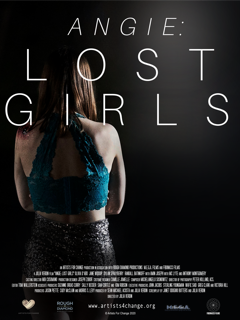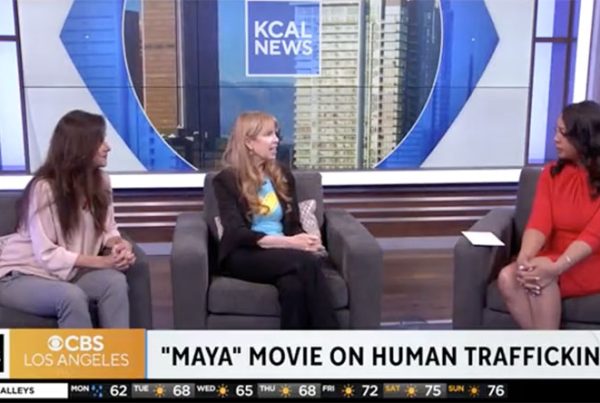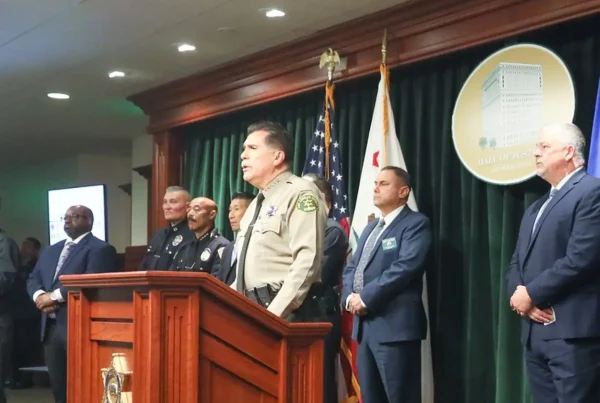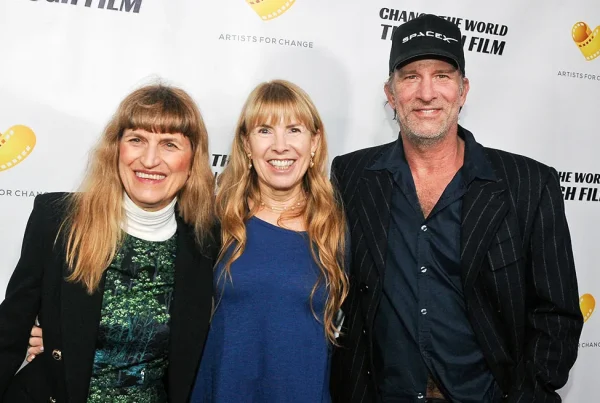

Angie: Lost Girls Starring Jane Widdop and Dylan Sprayberry – Julia Verdin’s Compelling, Brutally Honest Story about Child Trafficking Will Make You Realize It Can Happen Anywhere
By Allyson Schiller
It’s rare that a movie sits with me days after I’ve watched it. I don’t frequently find myself sitting and mulling over a scene from something I’ve watched last week, or reliving how I felt in other moments of my day. Modern consumption of media has created a society of “binge-worthy” works, where a viewer is encouraged to watch something, be it a movie or tv series, “fangirl” over it for a short period of time, and move on to the next. If you want something of depth, power and a strong call to action, Angie: Lost Girls, a fictional narrative feature, will have you thinking over each plotpoint days, even weeks after your viewing.
In times of Covid, many people find themselves with more free time on their hands. We have opportunities to see inequity in the world around us, and many people began thinking about ways to help those around them. Social justice moved to the forefront of many of our lives. If ever there were a film to make you want to do more for the greater good, this is it.
The story follows Angie ( ane Widdop), our 16-year-old protagonist that seemingly leads a normal life. She and her sister bond over their busy parents, boys and general events that seem so important to us all at sixteen. We discover her incredible abilities as a performer, busking with her ukelele for ice cream money with her sister, and through what seems like happenstance we meet Mario, a young man that promises the world, and an introduction to his music producing uncle.
This film is incredibly well made, but gruesome. It pulls back the curtain on atrocities that are happening under all our noses. It makes no apology in blatantly laying out the horrible things trafficked girls and women go through every day. It leans into these moments without making it feel like they are there for shock value.
But the film is not all brutality. We also get to see the other side of the coin, humanity at its rawest form. We see girls thrown together in circumstances outside of their control and their fight for survival. We see them become a makeshift family, pulling each other up in times of crisis. We see parental love, Randall Batinkoff and Olivia d’Abo play Angie’s heartbroken parents in emotional turmoil and desperate to get their child back. We see the things that one will do to protect those they love, at any cost.
Through this story, we learn about the uniqueness of Angie’s case with her charmed background and unrelenting family’s search. Many trafficked girls are not fortunate enough to have this support, disappearing without notice, as we see through the characters Zoe (LindseyDaSylveira) and Latisha (Rita Rucker).
The actors are raw, relentless, and understated in their realistic portrayal of these situations.
Jane Widdop is fantastic and intense as Angie. It is horrible to watch her journey and incredibly satisfying to see her come into her own and grow from these atrocities to ultimately help girls in similar circumstances.
Dylan Sprayberry as Mario does an excellent job of drawing us in to a character with an unexpected subtle and interesting backstory. You sense that there is more to him than the crimes he partakes in, and he leaves you wanting to know more about him. He opens your eyes to other kinds of victims caught in the crossfire of the sex trafficking circle and the cycle of abuse and complexity involved.
Denise Nicholson portrays a cold, calculating Ida, the “big boss” of the sex trafficking circle. Marty Dew as Deacon, her right hand man, is intense, even barbarous. Both are merciless in their different manners of abuse. You find yourself wondering how this story came to be, and how such terrible people could exist. It is heart wrenching to find out that indeed they do, and most of the worst moments in this film came from true stories.
This movie was created with the mission of educating families about sex traffickers and the tactics they use, and encouraging audiences to mobilize against it. It was written and directed by award-winning filmmaker Julia Verdin and produced for the non-profit Artists for Change which Julia founded. It’s mission is to produce films that postively transform society. Vist: www.artists4change.org/
This film leaves you both satisfied with the outcome and wanting more to be done. The good guys are out there doing the best they can, the task is just tall. It inspires change, it makes you want to know what more you can do. If you are looking for an eye-opening film that will get you thinking, “what can I do to help?” this is it.



